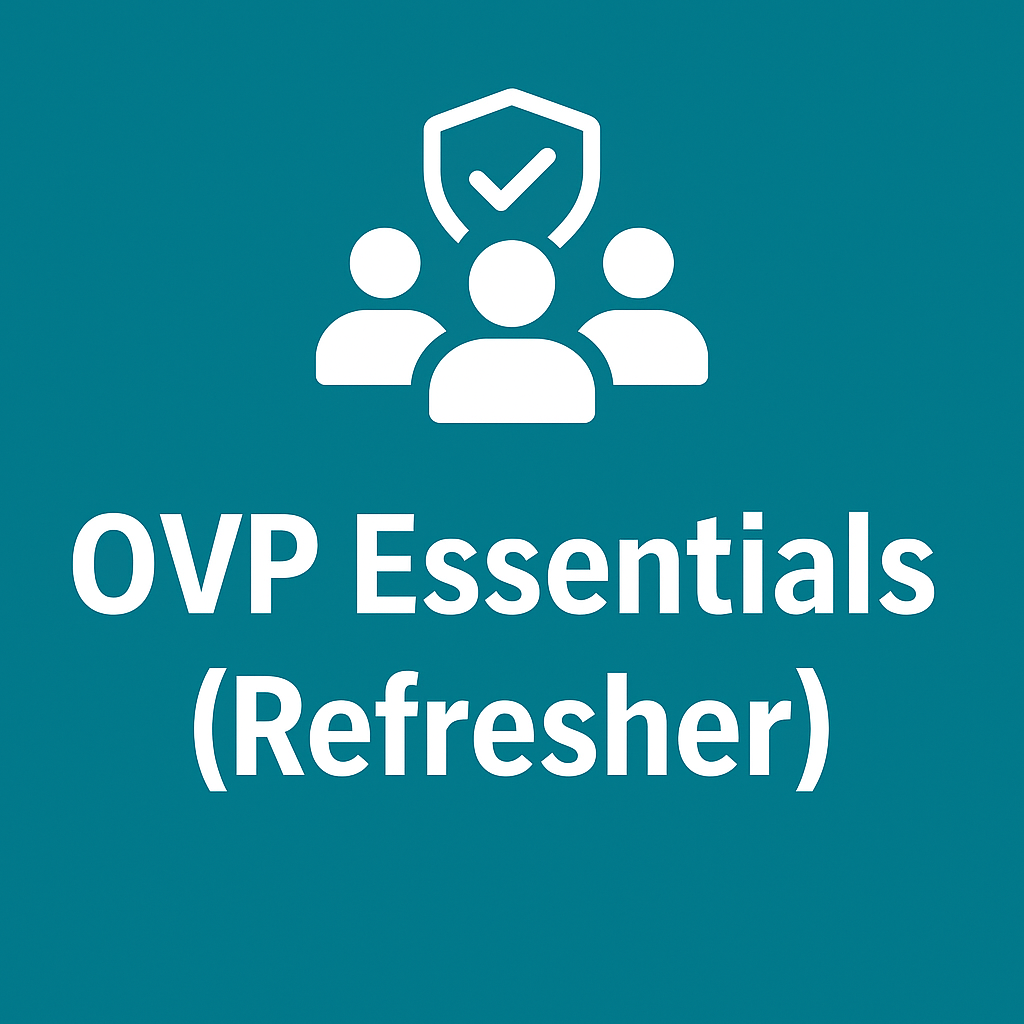
Course Overview – OVP Essentials (Refresher)
Occupational Violence Prevention (Refresher Series)
Program Title: OVP Essentials (Refresher)
Delivery Format: SCORM-compliant eLearning Modules
Total Duration: Approximately 90–100 minutes (across three lessons)
Target Audience: All personnel exposed to occupational violence risks, including clinical, frontline, operational, and administrative staff
Prerequisite: Completion of baseline or foundational Occupational Violence Prevention (OVP) training
Course Purpose
The OVP Essentials (Refresher) program is a structured, scenario-informed learning suite designed to reinforce foundational knowledge, update practical skills, and ensure compliance with organisational requirements for occupational violence prevention (OVP). Delivered in three integrated modules, this course is intended to be completed as part of annual or periodic refresher obligations for personnel working in environments where exposure to aggressive, abusive, or violent behaviours is a known risk.
The program supports Queensland Health’s occupational violence prevention framework and aligns with broader organisational risk management strategies. It is focused on building a proactive, capable, and safety-conscious workforce.
Learning Outcomes
On successful completion of the full program, participants will be able to:
-
Accurately define and identify different forms of occupational violence.
-
Recognise the organisational, psychological, and physical impacts of occupational violence.
-
Apply early intervention, de-escalation, and disengagement techniques safely and appropriately.
-
Demonstrate knowledge of organisational policies, reporting pathways, and escalation procedures.
-
Reflect on their role in fostering a safe workplace culture and upholding the principles of dignity, respect, and personal safety.
-
Meet assessment standards across all three modules and receive certification of completion.
Course Structure
Lesson 1 – Foundations of Occupational Violence Prevention
This module revisits the definitions, terminology, and key concepts underpinning OVP frameworks. It introduces the types of occupational violence, explores the impacts on individuals and organisations, and reinforces the shared responsibility for workplace safety.
Estimated Duration: 25–30 minutes
Lesson 2 – Risk Recognition and De-escalation Techniques
Building on foundational knowledge, this lesson explores behavioural warning signs, communication techniques, and structured de-escalation strategies. Learners are introduced to real-world examples and guided through response frameworks applicable in patient-facing, public-facing, and high-stress environments.
Estimated Duration: 30–35 minutes
Lesson 3 – Personal Safety and Incident Response
The final lesson focuses on what to do during and after a violent incident. It reinforces the importance of dynamic risk assessment, safe disengagement, immediate and post-incident response procedures, and the mental health and wellbeing considerations that follow an occupational violence event.
Estimated Duration: 30–35 minutes
Assessment and Certification
Each module concludes with a graded assessment. A pass mark must be achieved in all three assessments to be issued with a formal certificate of completion. Certificates may be used as evidence of compliance with organisational training mandates and safety obligations.
Final Note
Occupational violence is never acceptable and must not be seen as part of the job. This refresher program is a critical component in maintaining a vigilant, informed, and empowered workforce capable of managing threats to personal and collective safety in accordance with best practice and organisational policy.
- Student: Shannon Higgins
